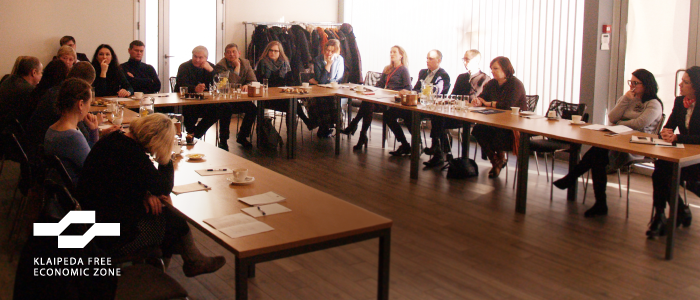News & Events
Watch our activity in one place
Business-to-academia initiatives pledged as Klaipeda empowers young engineers

Klaipeda’s business and academic communities have joined forces to speed the development of skills for future generations of engineers.
A group of representatives from Klaipeda Economic Development Agency (KEPA), Klaipeda FEZ, Klaipeda State University of Applied Sciences, Klaipeda Industrialist Associations, as well as major businesses operating in coastal Lithuania, met this week to shape the future direction of cooperation between academia and the private sector. The aim is to forge closer ties between education and business in order to speed the development of key skills among young engineers. This initiative was triggered by Fortum Klaipeda, a major innovator in the heating industry that operates at the Klaipeda FEZ, with support from KEPA and Invest Lithuania.
The panel, which also included representatives from leading Klaipeda companies such as Orion Global PET, Dancer Bus, Klaipėdos Baldai, Mars Lietuva, Vakarų laivų gamykla, Vingės logistika, and Klaipėdos Smeltė, concluded that by working more closely with actual businesses, colleges and universities will be able to deliver the kind of engineers that the sector needs.
For this reason, guidelines aimed at bringing students and Klaipeda companies closer together have been agreed. Klaipeda Economic Development Agency has been appointed as the coordinator of business-to-academia initiatives.
Eimantas Kiudulas, CEO of Klaipeda FEZ, says that closer cooperation with Klaipeda’s education institutions will benefit both the youth and the business environment of the city. “Obviously, our community needs young engineers with the most up to date skills and expertise, and we’re happy to contribute to their education by sharing the latest know-how that thrives across our zone.”
Simas Simanauskas, CEO of Klaipeda Economic Development Agency, added. “Having set out ambitious targets for doubling the GDP of Klaipeda by 2030 in our economic development strategy, it is imperative that we start with our talent pool. I believe the most interesting, challenging and well-paid careers in 2030 and beyond will require some sort of engineering background; therefore, we want to show young people the full breadth of what engineering means in practice.”
A panel including members from Invest Lithuania, universities, colleges and businesses has been tasked with creating an academia and business cooperation plan that would oversee initiatives such as mentorship by companies, apprenticeships, joint innovation, and start-up projects. The panel will promote the production of more business-oriented theses, and will look into the possibility of billing future university programmes as “recommended by Klaipeda companies”. Also, the board will seek subsidies to employ recent graduates and to subsidize start-up overhead costs.
